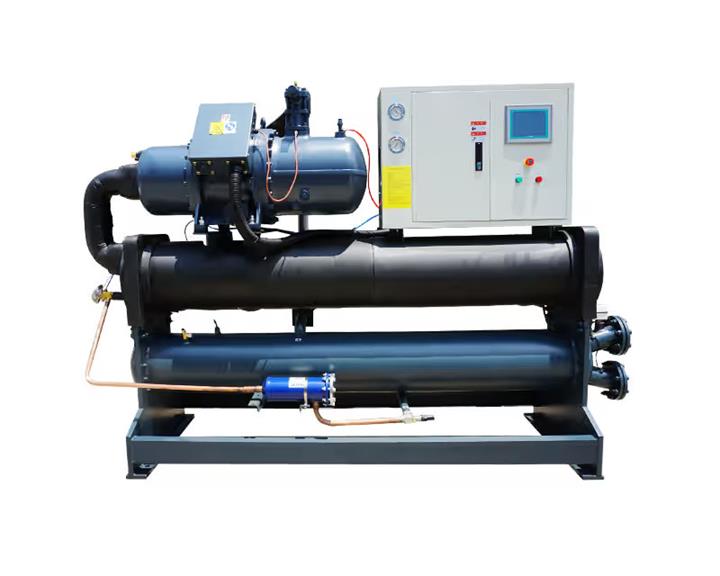Since air-cooled screw chillers rely on fans for heat dissipation, they must be installed in open, well-ventilated areas to maintain optimal cooling performance and efficiency. Fans are typically mounted on the top of the unit, but in some cases, they can be installed on the side as per customer requirements.

Common Causes and Solutions for Excessive Fan Noise:
High Fan Speed
- Cause: Excessive rotational speed can generate noise.
- Solution: Reduce the fan speed and check if the noise decreases. If the noise persists, replace the fan.
Large Gaps or Worn Components
- Cause: Loose components or excessive gaps can create abnormal noise.
- Solution: Adjust gaps to the appropriate size. Worn parts cannot be repaired and must be replaced.
Excessive Valve Flow
- Cause: High valve flow can create turbulent noise.
- Solution: Adjust the valve to reduce excessive airflow.
Motor Issues
- Cause: Electrical faults or motor malfunctions can contribute to noise.
- Solution: Inspect the motor and power supply for issues and resolve them accordingly.
Insufficient or Poor-Quality Lubrication
- Cause: Lack of lubrication or low-quality lubricants can increase friction and noise.
- Solution: Refill lubricant to the required level. If the lubricant quality is poor, replace it with a certified product.
Damaged Bearings
- Cause: Bearings may be worn out or broken.
- Solution: Contact the chiller manufacturer to replace the bearings.
Fan Blockage
- Cause: Accumulated dust or debris obstructing airflow.
- Solution: Inspect the air intake and exhaust vents, and remove any blockages.
If an air-cooled screw chiller experiences poor heat dissipation, it can lead to insufficient cooling capacity, affecting the supply of chilled water and overall system performance. Regular maintenance and timely troubleshooting can help ensure efficient and quiet operation.
